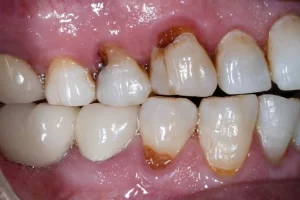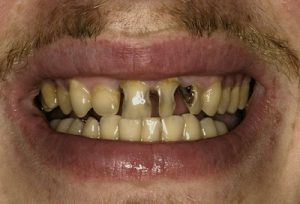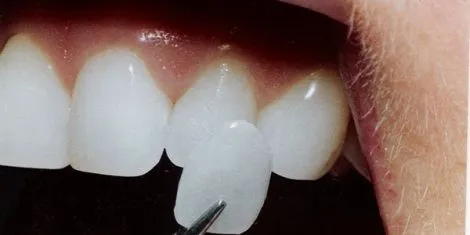Can You Put Veneers on Rotten Teeth?
The Basics of Dental Veneers
Dental veneers have gained significant popularity as a cosmetic dental solution. These thin shells, usually made of porcelain or composite resin, are custom-made to fit over the front surface of your teeth. They are designed to enhance your smile by improving the appearance of teeth that are stained, misaligned, chipped, or have gaps between them. Veneers offer a natural-looking solution that can transform your smile and boost your confidence.
Understanding Rotten Teeth
Rotten teeth, also known as decayed or cavitated teeth, occur when the protective enamel on the outer surface of the tooth gets damaged by bacteria. Poor oral hygiene, excessive consumption of sugary foods and drinks, and neglecting regular dental check-ups can contribute to tooth decay. If left untreated, decay can progress deeper into the tooth, causing pain, sensitivity, and even tooth loss.
It is essential to address rotten teeth promptly to prevent further damage and maintain good oral health. In most cases, treatment for rotten teeth involves removing the decayed portion and restoring the tooth with a filling, crown, or other dental procedures.
The Limitations of Veneers
While dental veneers are a versatile cosmetic solution, they are not suitable for all dental conditions. Veneers are primarily designed to enhance the appearance of healthy teeth and are not meant to treat underlying dental issues. Therefore, if you have rotten teeth, it is crucial to address the decay before considering veneers.
Veneers require a healthy foundation to bond properly and provide long-lasting results. Placing veneers on rotten teeth would be ineffective and could lead to complications. The decayed tooth structure is weak and unstable, making it unsuitable for veneer placement. Additionally, the decay can spread further under the veneer, causing further damage and compromising the overall oral health.
The Importance of Treating Rotten Teeth
Addressing rotten teeth is crucial for both your oral health and the success of any cosmetic dental procedure, including veneers. Here’s why:

1. Eliminating Infection:
Rotten teeth are often associated with bacterial infection, which can spread to neighboring teeth and gums if left untreated. By addressing the decay and infection, you can prevent further damage to your oral health and reduce the risk of complications.
2. Creating a Stable Foundation:
Before considering veneers or any other cosmetic dental treatment, it is essential to establish a healthy foundation. This includes treating decay, restoring damaged teeth, and ensuring proper oral hygiene practices. By doing so, you create a stable base for the veneers, increasing their longevity and effectiveness.
3. Achieving Optimal Aesthetics:
Veneers are designed to enhance the appearance of healthy teeth. Placing veneers on rotten teeth would not yield the desired aesthetic results. Treating decayed teeth first allows your dentist to restore your oral health and then provide suitable cosmetic solutions, such as veneers, to achieve a beautiful and natural-looking smile.
The Treatment Process
If you have rotten teeth and are interested in improving your smile with veneers, your dentist will likely recommend the following treatment process:
1. Dental Examination:
Your dentist will thoroughly examine your teeth and overall oral health. They will identify any signs of decay, infection, or underlying dental issues that need to be addressed before veneer placement.</p
2. Decay Treatment:
If you have rotten teeth, your dentist will recommend appropriate treatment to address the decay. This may involve removing the decayed portion of the tooth and applying a filling or, in more severe cases, performing a root canal procedure. By eliminating the decay and restoring the tooth’s health, you create a stable foundation for the veneers.
3. Restoration:
Once the decay has been treated, your dentist will restore the tooth to its proper shape and function. This may involve placing a dental crown, which covers the entire tooth, or using other restorative techniques to rebuild any lost tooth structure. The goal is to create a healthy and stable tooth structure that can support the veneer.
4. Impression and Customization:
After the tooth has been treated and restored, your dentist will take impressions of your teeth. These impressions will be used to create custom-made veneers that match the shape, size, and color of your natural teeth. The dental laboratory will fabricate the veneers to ensure a precise fit and optimal aesthetic result.
5. Veneer Placement:
Once the veneers are ready, your dentist will carefully bond them to the front surface of your teeth. They will ensure that each veneer is properly positioned and aligned for a symmetrical and natural-looking smile. The bonding process typically involves etching the tooth surface, applying an adhesive, and then securely attaching the veneer. Your dentist may make minor adjustments to ensure a comfortable bite and optimal aesthetics.
Alternative Options for Rotten Teeth
If you have rotten teeth and wish to improve your smile, but veneers are not suitable due to decay, there are alternative options to consider:
Dental Crowns:
Dental crowns are ideal for extensively decayed teeth. They cover the entire tooth, providing strength, protection, and an improved appearance. Crowns can be made from various materials, including porcelain, ceramic, or metal, depending on your specific needs.
Composite Bonding:
Composite bonding is a procedure where tooth-colored resin is applied and sculpted to restore the shape and appearance of decayed teeth. This cost-effective solution can be a suitable alternative to veneers for minor aesthetic improvements on rotten teeth.

Tooth Extraction and Replacement:
In cases where the decay is severe and the tooth cannot be salvaged, extraction may be necessary. After extraction, various replacement options, such as dental implants or bridges, can be considered to restore both function and aesthetics.
Conclusion
While dental veneers can transform your smile and enhance your appearance, they are not suitable for placing directly on rotten teeth. It is crucial to address decay and restore the tooth’s health before considering any cosmetic dental procedures, including veneers. By treating rotten teeth, you establish a stable foundation for the veneers, ensuring their longevity and effectiveness. Consult with your dentist to determine the most appropriate treatment options for your specific dental needs and achieve the smile you desire. https://kickassdental.com.au/dentist-in-ashfield/





